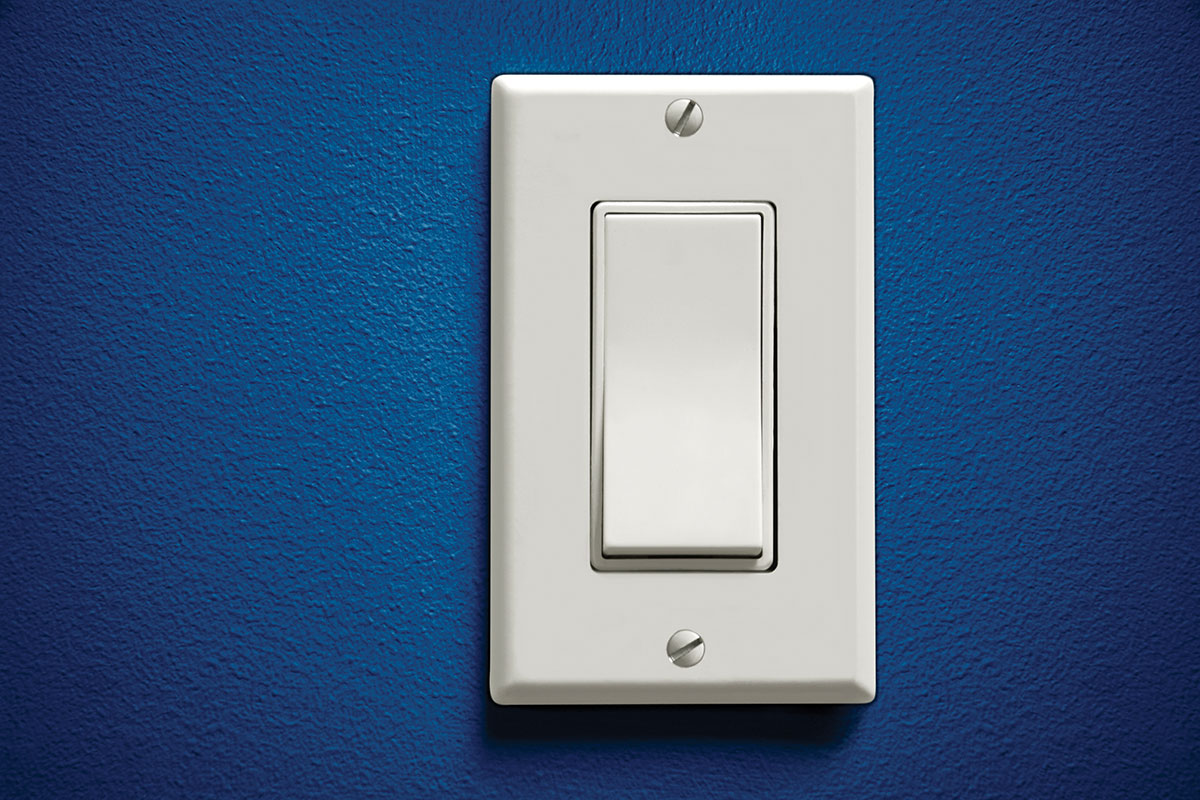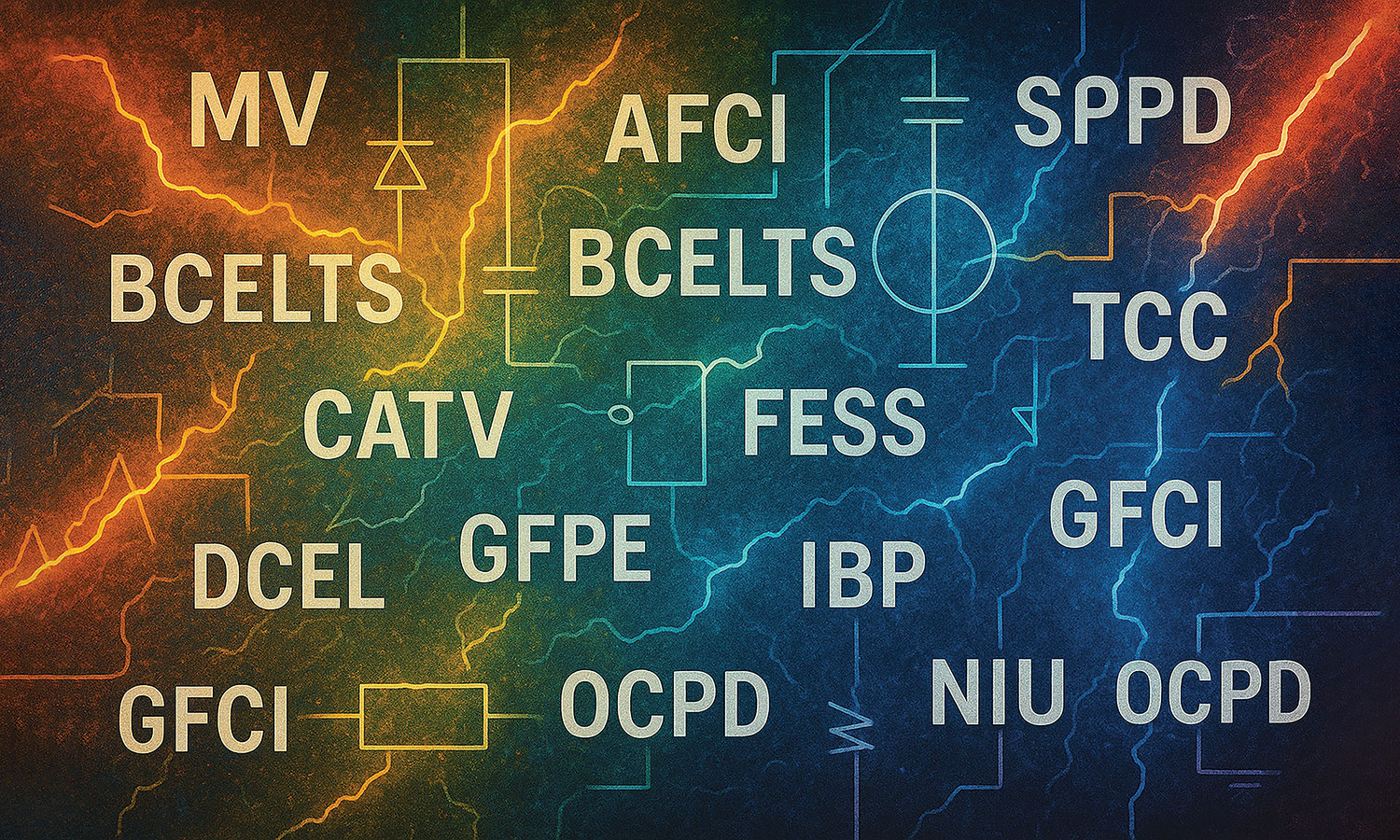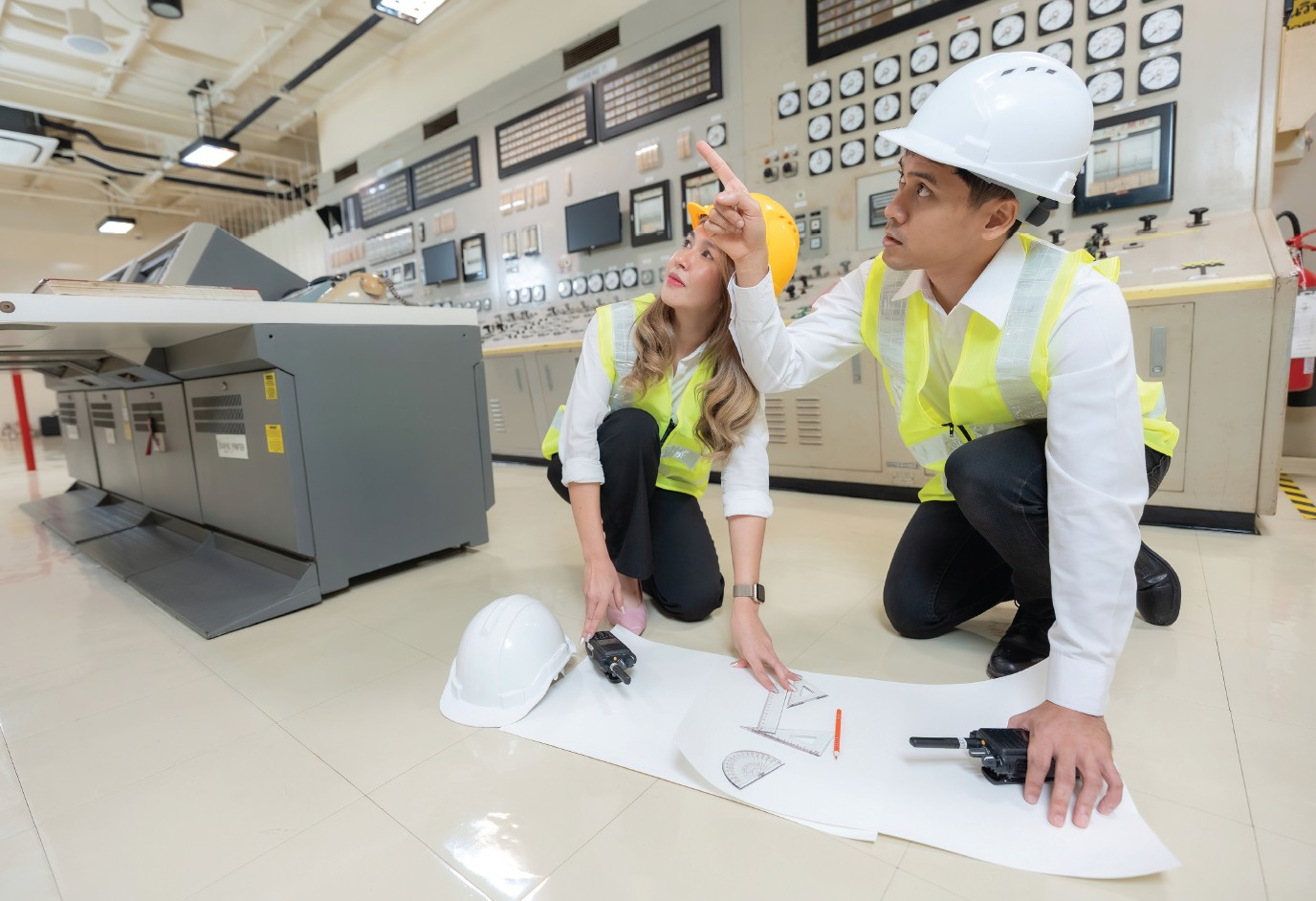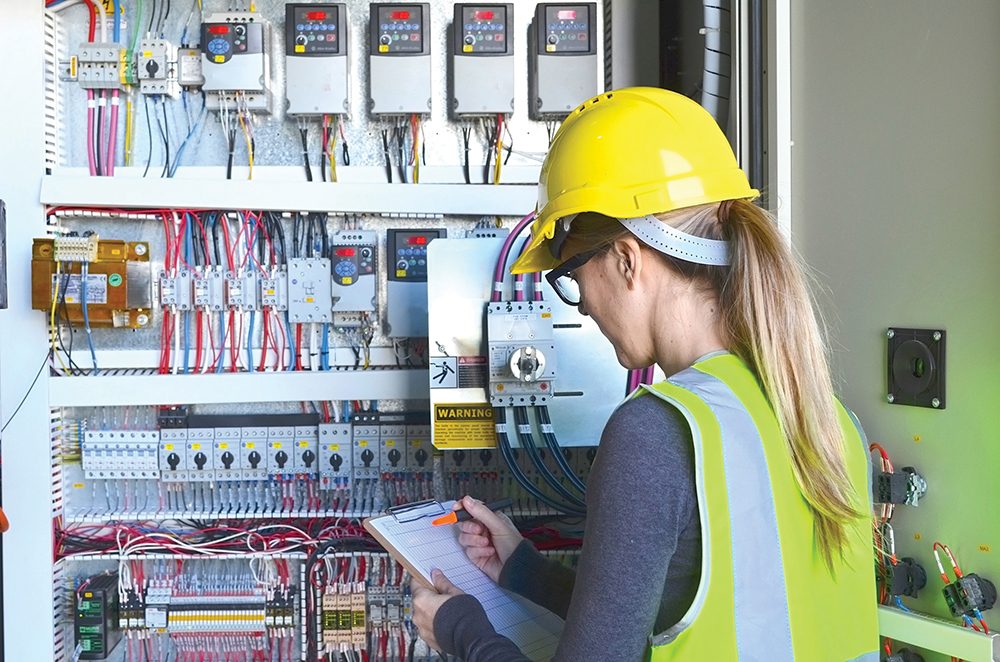Every prominent official of one of the electrical inspectors’ associations has frankly asked this question, What does the electrical industry think of the electrical inspector? I am going to answer in the same frank spirit and set down plainly what I find to be the feeling among electrical men. In a word, the electrical industry does not think about the electrical inspector at all. It looks upon the inspector as something quite apart from the electrical industry. And it regards this great body of men in the light of an unorganized police force, that undoubtedly contributes to safety in the use of electricity, but, instead of keeping order, promotes disorder because it is unorganized. But electrical men who have considered the subject at all from the national and industry standpoint believe that the inspector could be made a great constructive influence for progress, and they are disappointed because he is not.
There is no question as to the industry’s need of inspectors. All men recognize the vital importance of having an established code to guide the installation of electrical wiring equipment. Therefore, there must be an inspection service to insure the observance of the code. But the electrical men believe that this inspection service should be an active, coordinated function of the electrical industry, that the inspector should be something more than a policeman.
Purpose of Inspection
In my opinion, the fault lies not in either the intent or the ability of the inspector. No man can criticize the sincerity of these men or their capacity for work. Rather the trouble comes from too limited an objective, too narrow a vision of the purposes of inspection. For both the inspector and the electrical industry have overlooked the fact that there are two very fundamental reasons both for a code and for inspection.
Economic Influence
The prevailing belief is that the sole job of the inspector is to make wiring installations safe. Of course this was the first idea. That is why the fire underwriters first organized an inspection service. These men were told to prevent fire hazards, and they have done a faithful job, as thorough a job as they were able to, in keeping the code safe. But prevention being their responsibility they have naturally leaned over backward and too far, and taken an attitude of prohibition, so that electrical men have come to feel that development and progress in the code can only be achieved through overcoming the opposition of the insurance interests and the inspectors. And being so closely focused on this work of making electrical installations safe, the inspectors have almost entirely overlooked the fact that they have another responsibility of no whit less importance—to make electric installations economical.
There is just as great an economic value in a code and inspection service as in its value for the promotion of safety. The economic value of a code and inspection service comes through its influence for the standardization of manufactured products and reduces the amount of duplication and the excess varieties of types and sizes that must be manufactured, distributed, stocked and sold. This means, of course, production in larger quantities and at lower costs. It also means convenience to the public because any lamp will fit any socket and because an appliance may be taken from one house to another and used. It means that men who buy material when they place an order know what they are going to get. It makes it possible for men who install wiring to use material from many sources on the same job, because every manufacturer’s product is not dissimilar from every other make. And without a large measure of such standardization the great development of the electrical industry would not have been possible.
Responsibility for Saving
But the inspectors, in their earnest pursuit of safety, have forgotten this economic responsibility that rests upon them. They have not taken any active part in helping to keep the manufacture, distribution and installation of electrical products simple as well as safe, from the national and industry viewpoint. And yet I believe that the inspector might have been and may still make himself an outstanding leader in this constructive work.
The great weakness of the inspector today, it seems to me, is this lack of national coordination and responsibility. It is perfectly natural that men’s opinions should differ as to whether this method of construction or that material is safest. But it is not possible to maintain an orderly and progressive industry if we permit the fundamental regulation of electrical construction to be arranged in each community to suit the local preference and prejudice, any more than you could maintain an orderly federal government and leave the national laws to be adopted and applied as any community might desire.
Costly Confusion
And, furthermore, it is not necessary—for what is safe in Ashtabula is safe in Oklahoma City. True, conditions differ in different kinds of towns, but under given conditions an electric circuit can be constructed the same way in Seattle or Sioux City, Savannah or Syracuse, and be equally secure. And yet today the rules of the electrical inspector may differ with the landscape or the locality. Consider the safety switch, that much-quoted example of inspection inconsistency. It is an iron box enclosing a switch and fuse—same kind of iron, same kind of copper, same kind of electric current, same sort of human being to handle it. Yet in one place to be officially safe the cover must be hinged at the left, while another state requires hinges at the right, while still another insists on top hinges, and a fourth locality forbids all hinges and demands set screws. A prominent jobber told me once that he was compelled to carry in stock six different varieties of one size of safety service entrance switch to meet the inspection requirements of various cities within the territory he serves. Think of the burden of extra stocks that this entails all along the line and the extra jigs and patterns back in the factory and what it costs.
In a word, the result of this present lack of inspection uniformity in the electrical industry causes a considerable degree of economic pandemonium. The inspector has been saving the public millions of dollars through reduced fire loss, but he has been causing the waste of other millions quite as valuable and as savable by lack of simplicity and uniformity in regulations that have resulted in endless duplication and excess varieties of manufactured products. The reason is that whereas the inspector has been taught his responsibility for safety, he has not been charged with his economic responsibility and he has not been interested in it. But he can be interested in it, and when he is he will render a great service to the electrical industry and to the American people and open up a great opportunity for himself.
That, I find, is about what the electrical industry thinks of the electrical inspector, with whom it has as yet had so little in common. But I am not willing to let the subject rest right here with criticism and no suggestions. I am going to tell you what I think you ought to do. If I were king of the electrical inspectors of America, I’ll tell you what I think I’d do first thing. I’d call a great convention of inspectors—have them all there in a great hall—in Chicago or New York—and I would lead on the stage a policeman from the nearest corner. I would say to these inspectors: “Look at this man and consider the case of the ‘cop’—how he has changed in the public estimation in recent years. There was a time when a policeman’s sole idea was to watch for people who were breaking laws. ‘Cheese it, the cop!’ expressed the prevailing public sentiment. He represented the power of government and worked purely by interference. Then came traffic, and the policeman took his place upon the crossing to help and not to hinder, and presto! the whole public psychology toward the cop has changed—because the spirit of the officer himself changed once he was given something helpful and friendly to do.”
What the Industry Asks
No one could ask that electrical inspectors should be any finer type of men than they are now today, or say that they must have higher principles, but the electrical industry does ask this:
First—That they get a new slant on service.
Second—That they become helpful to the public as well as protective.
Third—That they become something more than the watchdog of electric wiring.
Fourth—That they stop being an offshoot of the insurance business or merely a department of municipal government and organize as one of the great functional branches of the electrical industry, with a progressive program and a constructive purpose.
Fifth—That they cooperate with the other branches of the electrical industry to keep order in electrical construction from the national standpoint and assist in developing the art as well as preserving safety.
And again I think you will say, “All right, but how are we to set about it?” Well, I think if I were king of the electrical inspectors in America, I would set up these eight objectives and work for them—and I submit them to you for your consideration:
First—Organize into a national association of electrical inspectors to tie together all groups and build a national consciousness for the inspector and win for yourselves a position of recognized influence and leadership in the electrical industry.
Second—Become a progressive and creative factor in the development of the Code, suggesting improvements whenever the possibility appears, working conspicuously for simplicity, for flexibility and for economy as well as for safety.
Third—Become the organized champion of orderly procedure in the evolution of the Code through the approval of new products and the revision of the rules.
Fourth—Get behind the uniform ordinance that has been developed by the Electrical Manufacturers’ Council and work for its adoption in all cities as a practical means of securing uniformity of inspection throughout the land. Here is a great economic contribution which the inspector can make to the American people.
Fifth—Work for tolerance and common sense in the interpretation of the Code. Make it the consistent national policy of the inspectors that if two rules are applicable the broader should govern, since both are safe. Establish an ideal of helpfulness in inspecting rather than the spirit of prohibition and autocratic authority that is too often encountered.
Sixth—Take leadership in the encouragement of adequacy in wiring installations by suggesting to the contractors the benefits that come from more satisfying installations. I think that the inspectors should be out-and-out advocates of the “Red Seal” plan and active supporters of the local league in every community.
Can Help Lower Costs
Seventh—Wield a guiding influence to keep down the cost of electrical installations by discovering developing, and promoting possibilities for economies both in methods and material.
Eighth—Become the recognized authority on electrical safety. The inspector, being neutral, is the one man who can speak of electrical safety with complete acceptance locally. He should promote public confidence in electricity as much by teaching the public to make their wiring installations safe as by policing the work of their electrical industry.
There has been long-continued controversy among electrical men over the procedure that should be followed in admitting new products for use in electric wiring. The issues involved in this whole question involve many technicalities and traditions, and the average man is apt to be a bit bewildered. It seems to me, however, that under it all stand out these four principles to which any fair mind will subscribe:
1. The National Electrical Code and the National Electrical Safety Code, having been established as American standards under the regulation of the American Engineering Standards Committee, are no longer merely the instruments of the fire insurance underwriters nor the property of the electrical manufacturers, the contractors or the inspectors. Their function is neither to defend established products nor yet to restrict or assist new products, but solely to provide and maintain adequate protection for the American public in step with the advancing art.
2. The testing of new materials as acceptable in these Codes should be from the sole standpoint of determining the fire or casualty hazard involved in their use when the material is installed in accordance with the Code.
3. Specifications for such test should deal with the purpose and the methods of the test, but not with the construction of the material, the issue being not its structure, but its safety and dependability in the performance of its function.
4. New materials should be approached, not for the purpose of proving them good or bad, right or wrong, but by an orderly procedure to determine their fitness for admission for use under the Code.
If these four principles were clearly understood and universally accepted, there could be little basis for disagreement over new products. Men would naturally withhold judgment until proper tests were made and then abide by the results. And I believe that the inspectors can bring a helpful guidance here. If the electrical inspectors will unite and do these things and render the continuing services that will naturally suggests themselves, nobody will ever have to ask again what the electrical industry thinks of the inspector. The electrical industry will then be very conscious of the influence and importance of the inspector—and so will the American people.
Editor’s Note: This article is reprinted from News-Bulletin, January 1930, pages 3-6














Find Us on Socials